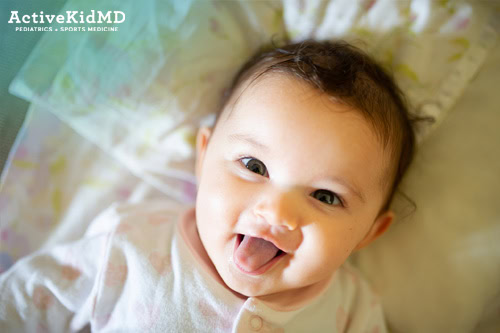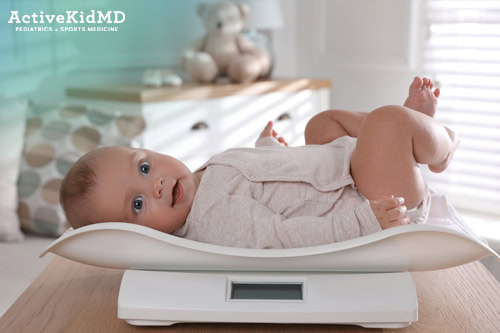Are you worried because your baby spits up? Does it feel like most of your baby’s breastmilk or formula comes right back out, dripping down their chin and onto their clothes? Sound familiar? If so, you’re not alone. Nearly every baby spits up during the first few months of life.
- Spitting up may start right after birth but most commonly begins around 2–3 weeks of age.
- It typically peaks around 4 months and usually improves by 6–8 months, once babies are sitting up.
For most babies, spitting up is considered a normal part of development. It may be inconvenient and messy but is usually harmless. RELATED TOPIC: Motor Development in the First Year of Life
When should you be concerned?
While spit up is normal for many babies, there are a few signs that could indicate something more serious.
1. Is it vomiting or just spitting up?
Spitting up is milk or formula that gently flows out of your baby’s mouth. Vomiting, on the other hand, is forceful. Some newborns can hit the wall three to four feet away from them. That’s called projectile vomiting. Projectile vomiting can be a sign of a bigger problem including something called pyloric stenosis (obstruction at the end of the stomach). If your baby truly has projectile vomiting (hitting the wall three to four feet away), this is a medical emergency needing an immediate call to your pediatrician for evaluation.
 2. Is your baby gaining the appropriate amount of weight?
2. Is your baby gaining the appropriate amount of weight?
If a baby has frequent spit up and is not gaining sufficient weight, there is a chance that they are spitting up necessary calories needed for growth. Pediatricians can plot measurements on growth curves that help determine a healthy amount and pace of weight gain for each baby. If you feel your baby isn’t getting heavier week by week, or the scales aren’t showing sufficient weight gain, schedule a visit to express your concerns.
3. Is there a red or green color?
Normal baby spit-up is usually clear or whitish, with the same color and texture as breast milk or formula. It may sometimes contain small, curdled “chunks” of milk, which is also normal. Warning signs in spit-up:
- Red spit-up may indicate blood and is not normal.
- Green spit-up can signal that bile or abnormal stomach contents are coming up, which may mean a blockage in the digestive tract.
If your baby’s spit-up is red or green, seek medical attention immediately.
4. Is your baby generally happy?

- A baby who spits up and is unhappy might have uncomfortable burning from stomach acid coming up through the esophagus (swallowing tube) and into the mouth.
- The burning (also known as reflux) may also cause a baby to arch up with lying on their back or cough more than expected.
- Babies with reflux may also have issues with sleep and gaining weight.
- Unhappy babies with spit up should see a pediatrician for a full assessment and to determine the best ways to make them happy (and their families happy).
5. Is your baby too old to just start to spit up?
Spitting up normally improves after 4 months and rarely starts for the first time after that. A sudden increase in spit up or new symptoms after 4 months warrants a conversation with your pediatrician.
The Bottom Line



 2. Is your baby gaining the appropriate amount of weight?
2. Is your baby gaining the appropriate amount of weight?